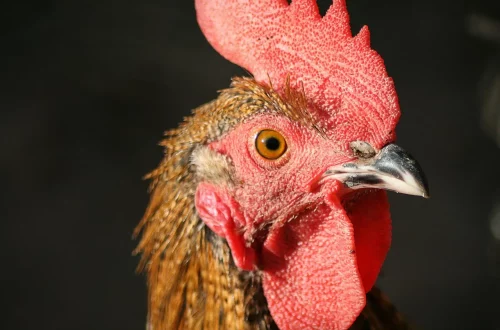
Understanding Goldendoodle Adults: Care, Traits, and Lifestyle
The Goldendoodle, a delightful hybrid breed resulting from the cross between a Golden Retriever and a Poodle, has captured the hearts of many dog lovers. This breed is known for its friendly disposition, intelligence, and hypoallergenic coat, making it an ideal choice for families, singles, and seniors alike. As these dogs transition from playful puppies to mature adults, their needs and characteristics evolve, requiring owners to adapt their care routines and lifestyle choices accordingly. Goldendoodles are not just pets; they become integral family members, providing companionship, love, and entertainment.
Understanding the adult Goldendoodle involves recognizing their unique traits, behavioral patterns, and the specific care they require to thrive. The bond between Goldendoodles and their humans is often strong, marked by loyalty and affection. However, to maintain a harmonious relationship, it is essential to understand their requirements for exercise, grooming, training, and socialization. As these dogs mature, their personalities may develop in unexpected ways, and being mindful of their emotional and physical needs can lead to a fulfilling partnership. Whether you are a current owner or considering welcoming a Goldendoodle into your home, gaining insight into their adult phase is crucial for ensuring a happy and healthy life together.
Characteristics of Adult Goldendoodles
Adult Goldendoodles exhibit a range of characteristics that make them unique companions. One of the most notable traits is their temperament. Generally, Goldendoodles are known for their friendly and sociable nature. They are typically eager to please, making them highly trainable. Their intelligence, inherited from both the Poodle and the Golden Retriever, allows them to learn commands and tricks quickly. This quality also means that they thrive in environments where they can engage in mental stimulation, such as puzzle toys or obedience training classes.
In terms of physical attributes, Goldendoodles can vary in size depending on whether they are bred from standard, miniature, or toy Poodles. This variance leads to a spectrum of sizes, ranging from 15 to 90 pounds. Their coats are often wavy or curly, which helps reduce shedding and makes them suitable for allergy sufferers. Regular grooming is essential to maintain their coat’s health and appearance. This includes brushing several times a week and periodic professional grooming to prevent matting and tangles.
Moreover, adult Goldendoodles are known for their friendly disposition. They typically get along well with children, other pets, and even strangers, making them excellent family dogs. However, socialization is crucial in their early years to ensure they grow up to be well-adjusted adults. Introducing them to various environments, people, and pets can help mitigate any potential behavioral issues, such as fear or aggression.
In conclusion, the characteristics of adult Goldendoodles are a blend of intelligence, sociability, and adaptability. Their friendly nature and trainability make them ideal companions, provided they receive the right care and socialization throughout their lives.
Care Requirements for Goldendoodle Adults
Taking care of an adult Goldendoodle involves several important aspects that contribute to their overall well-being. One of the primary considerations is their exercise needs. Goldendoodles are active dogs that require regular physical activity to maintain their health and happiness. Daily walks, playtime in the yard, and engaging in interactive games like fetch are essential for their physical fitness. A lack of exercise can lead to behavioral issues, such as boredom and anxiety, so it is crucial to provide them with ample opportunities to burn off energy.
Nutrition is another critical element of care. Adult Goldendoodles should be fed a high-quality, balanced diet tailored to their specific needs. Factors such as size, age, and activity level should inform their dietary requirements. Consulting with a veterinarian can help determine the best food options and portion sizes. Regular feeding schedules help establish routine and can prevent overeating or obesity, which is a common concern in larger breeds.
Grooming is vital for maintaining the health of a Goldendoodle’s coat. Their hair can be prone to matting, so regular brushing is necessary to keep it clean and free of tangles. Bathing should occur as needed, usually every six to eight weeks, or more frequently if they get particularly dirty. Additionally, regular nail trimming, ear cleaning, and dental care should not be overlooked, as these aspects contribute to their overall health.
Lastly, regular veterinary check-ups are essential for monitoring the health of adult Goldendoodles. Routine vaccinations, parasite prevention, and health screenings can help catch potential issues early and ensure a long, healthy life. By addressing these care requirements, Goldendoodle owners can help their pets thrive as they transition into adulthood.
Socialization and Training for Goldendoodles
Socialization and training are fundamental components of raising a well-adjusted adult Goldendoodle. Proper socialization during their formative months can lead to a confident and well-rounded adult dog. Introducing Goldendoodles to various environments, people, and other animals helps them develop essential social skills. This exposure reduces the likelihood of fearfulness and aggression, allowing them to interact positively with their surroundings.
Training should begin as early as possible, using positive reinforcement techniques to encourage desired behaviors. Goldendoodles are intelligent and eager to please, which makes them highly receptive to training. Basic commands such as sit, stay, and come should be established early on. As they grow, owners can introduce more advanced commands and tricks, utilizing their natural intelligence and enthusiasm for learning.
Consistency is crucial in training sessions. Establishing clear rules and boundaries helps Goldendoodles understand what is expected of them. Short, frequent training sessions are often more effective than long, infrequent ones, as they maintain the dog’s interest and engagement. Incorporating games into training can also enhance the experience, making learning enjoyable for both the dog and the owner.
In addition to formal training, providing opportunities for play and interaction with other dogs can enhance a Goldendoodle’s social skills. Dog parks, playdates, and obedience classes offer great venues for socialization. Engaging in group activities not only helps develop their social skills but also strengthens the bond between the dog and owner.
Ultimately, effective socialization and training lead to a well-mannered and confident adult Goldendoodle. By investing time and effort into these aspects, owners can foster a positive environment that supports their dog’s emotional and behavioral development.
Health Considerations for Goldendoodle Adults
Health considerations are paramount for ensuring the longevity and quality of life of adult Goldendoodles. Like any breed, Goldendoodles can be predisposed to certain health issues, which can be influenced by genetics and lifestyle. Owners should be aware of common health concerns associated with this hybrid breed to take proactive measures.
One potential issue is hip dysplasia, which can affect both the Golden Retriever and Poodle parent breeds. This condition occurs when the hip joint does not fit properly into the hip socket, leading to arthritis and pain. Regular vet check-ups, maintaining a healthy weight, and providing appropriate exercise can mitigate the risk of hip dysplasia.
Another concern is certain skin conditions, including allergies and infections. Goldendoodles can develop sensitivities to various environmental factors, leading to itchy skin or other dermatological issues. Regular grooming and baths can help maintain skin health, but it is also essential to monitor for any signs of irritation or discomfort.
Dental health is often overlooked but is critical for Goldendoodles. Regular brushing and dental check-ups can prevent issues such as periodontal disease, which can lead to serious health complications if left untreated. Providing dental chews and toys can also help maintain oral hygiene.
Lastly, regular vaccinations and parasite prevention are vital for protecting Goldendoodles from infectious diseases and infestations. Consulting with a veterinarian about a suitable vaccination schedule and preventative measures can help keep your Goldendoodle healthy and thriving.
In summary, by being aware of potential health issues and taking preventive measures, Goldendoodle owners can significantly enhance their pet’s quality of life. Regular veterinary care, proper nutrition, and attentive grooming are essential components of maintaining the health of an adult Goldendoodle.
—
This article is intended for informational purposes only and should not be considered medical advice. For any health concerns about your pet, please consult a qualified veterinarian.




